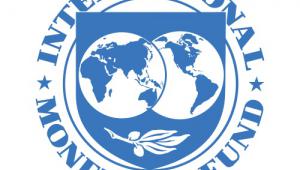Global financial vulnerabilities have built up during the recent years of expansionary policies and could put growth at risk, the report, out on Wednesday, said.
Short-term risks to financial stability had increased since the October 2017, it added.
Higher inflation might lead central banks to respond more aggressively than expected, which could lead in turn to a sharp tightening of financial conditions, the IMF said.
Emerging markets had generally “improving fundamentals”, the organisation highlighted, but could be vulnerable to any sudden tightening of global financial conditions.
The IMF noted that banks had strengthened their balance sheets since the 2008 crisis but parts of the system face a structural US dollar liquidity mismatch that could be a vulnerability.
It advised: “Policymakers and investors must remain attuned to the risks of rising interest rates and higher market volatility.”
“Central banks should continue to normalise policy gradually and communicate clearly, while policymakers should address vulnerabilities by deploying and developing macro-prudential tools.”
Tobias Adrian, IMF director for the monetary and capital markets department, said: “Vulnerabilities may make the road ahead bumpy and could put growth at risk.”
He said a “severely adverse scenario” could even see negative growth three years from now.
Adrian said there were three main vulnerabilities: stretched valuations across many asset classes; borrowing by emerging markets in low-income countries; and bank dollar liquidity mismatches.
Issues of riskier bonds “had surged”, while leveraged lending hit a record high in 2017 and any resulting unexpectedly fast rise in inflation might lead to a sudden tightening in financial conditions by banks “and a sharp fall in asset prices”, the IMF warned.
This might result in market turbulence “amplified by liquidity mismatches and increased use of financial leverage”, the organisation added.
Adrian said ‘crypto’ assets could make some market infrastructure, such as payment systems, more efficient.
But they had also “been afflicted by fraud, security breaches, and operational failures”.
‘Crypto’ currencies accounted for only some 3% of the balance sheets of the world’s main central banks, which “implies little risk to financial stability, but they could pose greater risks in the future”, he added.
In its world economic outlook on Tuesday, the IMF also warned world governments to safeguard economies against a downturn.













